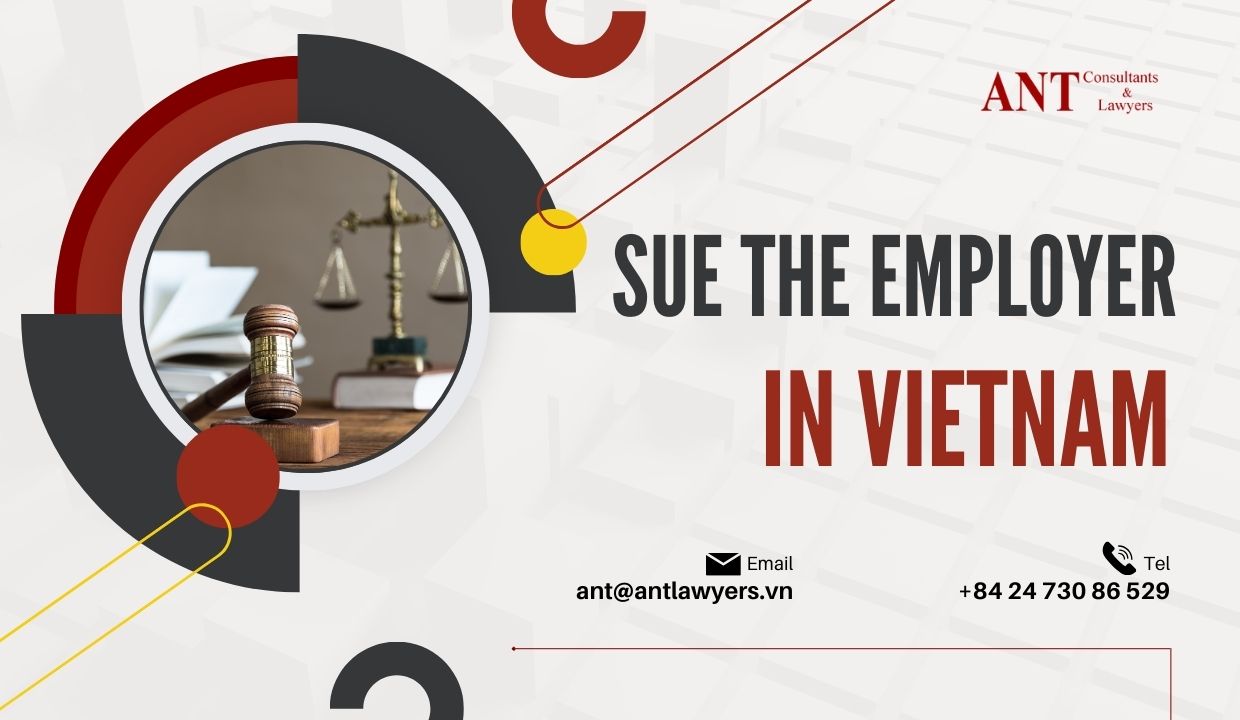If you would have faced unlawful termination from your job, you would be feeling a mix of anger, frustration, and uncertainty about what to do next. However, you need to get past the emotion part and focus on what best you could get out of the situation rationally.
You might look around and realize that, in Vietnam, the labor law is generally geared toward providing more protection to employees from unfair dismissal. However, many workers are unaware of their rights or how to take action.
In reality, many foreign expatriates who face financial constraints due to unpaid salaries often leave the country without taking action against their employers, hesitating to engage labor dispute lawyers in Vietnam. However, after reading this, if you are one of them, you might reconsider, as the rewards could outweigh the investment.
In the following, we would give you some ideas on the necessary steps to sue the employer in Vietnam for wrongful termination and improve that chance to get the justice you deserve. You might think that as lawyers in Vietnam, as you ask, we sue the employer immediately. But we of course do try amicable ways first and in here will break down the legal process and explain each step clearly so you can move forward with confidence.
Also note that, another incentive is that, the court fee in labour dispute is not based on the claimed amount therefore it is not a huge financial burden to start a lawsuit in labour dispute in Vietnam.

Introduction: Understanding Unlawful Termination in Vietnam
Before diving into how to sue the employer in Vietnam, it’s essential to understand what constitutes unlawful termination.
Under Vietnam’s Labor Code, an employer cannot terminate a labour contract arbitrarily.
Termination must comply with legal requirements, which include:
- Providing a valid reason (such as poor performance or misconduct or employer’s financial difficulties).
- Giving the required notice period (which varies depending on the nature of the employment).
- Following procedural steps in line with Vietnamese labor law.
Common cases of unlawful termination include dismissals without notice, dismissals based on discriminatory practices, or dismissals without a valid reason as specified in the Labour Code.
Now that we have covered the basics, let us explore the steps you can take to sue the employer in Vietnam if you believe you’ve been unlawfully terminated.
Confirm That the Termination Is Unlawful
The first and most critical step before deciding to sue the employer in Vietnam is to confirm whether your dismissal was truly unlawful.
You would need to evaluate if your termination breaches any provisions under the Vietnam Labor Code, such as:
- Lack of a legitimate reason for dismissal.
- Breach of notice periods.
- Firing due to discriminatory reasons, such as age, gender, or religion.
- Retaliation for filing a complaint or whistleblowing.
If any of these conditions apply, your employer may have violated the law, giving you grounds to sue them.
How to Gather Evidence
To build a strong case, it’ is important to gather evidence of your wrongful termination. This includes:
- A copy of your labor contract.
- Written communication (such as termination letters, emails, or messages) from your employer.
- Witnesses who can testify to events leading up to the dismissal.
- Any performance reviews or other employment records that contradict your employer’s claims.
By gathering this evidence early on, you can better prepare yourself for the legal battle ahead.
Seek Legal Advice from a Labour Lawyer
To successfully sue the employer in Vietnam, hiring a qualified labour lawyer in Vietnam with track record is crucial. Labour laws can be complex, and an experienced dispute lawyer in Vietnam will guide you through the complexities of legal processes, ensuring you are making the right moves every step of the way.
Choosing the Right Lawyer
When selecting a lawyer, make sure they specialize in labour disputes and have experience handling cases of unlawful termination. Such lawyer will:
- Assess the strength of your case.
- Help you gather and present evidence.
- Represent you during negotiations with the employer.
- Assist with filing the lawsuit if negotiations fail.
The cost of hiring a labour lawyer in Vietnam varies, but many offer an initial consultation to evaluate your case, which can be invaluable. It is important to consider how well you could communicate with the lawyer because it gives you comfort and that you have work with the lawyer in a team. But remember they are not allowed to promise you will win.
Attempt Mediation with Your Employer
Before filing a lawsuit to sue the employer in Vietnam, you are typically required to go through a mediation process. Vietnam’s labour law encourages dispute resolution through mediation to avoid court battles. The goal here is to negotiate with your employer to reach a mutual agreement.
How Mediation Works
Mediation sessions are usually overseen by a labour mediator who works at the local Department of Labor, Invalids, and Social Affairs (DOLISA). Both you and your employer will present your arguments, and the mediator will try to help both parties come to an amicable solution. This process is designed to be quicker and less costly than a formal lawsuit.
However, if mediation fails or your employer refuses to cooperate, you can proceed to the next step and formally sue the employer in Vietnam. In our experience, majority of cases lead to litigation however the mediation could still exist in different formats i.e. with the judge acting as mediator.
File a Complaint with the Labour Department
If mediation does not resolve the issue, your next move is to file a formal complaint with the Department of Labor, Invalids, and Social Affairs (DOLISA). This is a critical step in the process to sue the employer in Vietnam.
Steps for Filing a Complaint
- Submit a Written Complaint: Draft a clear, concise complaint outlining the details of your wrongful termination. Include copies of relevant documents, such as your labor contract, termination letter, and any evidence gathered.
- DOLISA Review: The department will investigate your complaint, reviewing both sides of the dispute. They may summon you and your employer for further discussions and additional mediation attempts.
- Resolution: If the DOLISA finds in your favor, they will issue a formal decision requiring your employer to rectify the situation, which may include reinstatement or compensation. However, if this doesn’t resolve the issue, you can escalate the matter by going to court.
Prepare to Sue the Employer in Vietnam in Court
If mediation and filing a complaint do not result in a satisfactory resolution, the next step is to escalate your case to a labour court. This is where you will officially sue the employer in Vietnam for wrongful termination.
Filing the Lawsuit
To initiate legal action, your lawyer in Vietnam will need to file a lawsuit with the Provincial People’s Court.
Here’s what you should prepare:
- A detailed petition explaining the nature of the unlawful termination.
- All evidence that supports your case, including documents and witness statements.
- The desired outcome, whether it’s reinstatement, compensation, or both.
Timeline and Costs
The court process can take anywhere from a few months to over a year, depending on the complexity of the case. Legal fees and court costs vary, but your lawyer can give you an estimate based on your specific situation.
Present Your Case in Court
Once your lawsuit is filed, the court will set a date for your hearing. This is where you or your lawyer will argue your case, aiming to prove that your termination was unlawful. If you are foreigner, you do not need to be in Vietnam. You could appoint the lawyer to represent you at court.
Tips for a Successful Court Case
- Prepare Thoroughly: Make sure all your evidence is organized and ready to be presented. Your lawyer will likely cross-examine your employer, so being well-prepared is essential.
- Stay Professional: Although it’s natural to feel emotional during this process, staying calm and professional will reflect well on your character during court proceedings.
- Be Patient: Lawsuits can take time, and patience is key. Trust your legal team and follow their guidance throughout the process.
Collect Compensation or Secure Reinstatement
If the court rules in your favor, the court’s judgment will typically fall into one of two categories:
- Compensation: If reinstatement is not feasible, the court may award you compensation for lost wages, emotional distress, and other damages.
- Reinstatement: In some cases, the court may order your employer to reinstate you in your previous position. This can also include back pay for the time you were unlawfully terminated.
Your employer will be legally required to comply with the court’s judgment. If they fail to do so, additional legal measures can be taken to enforce the ruling.
Conclusion: Protecting Your Rights and Taking Action
Facing unlawful termination is a stressful experience, but by following the proper legal channels, you can hold your employer accountable. The process to sue the employer in Vietnam for wrongful termination may seem challenging at first, but with the right guidance, preparation, and legal support, you can achieve a fair outcome.
It is important to remember that labour laws in Vietnam are designed to protect employees like you from unjust treatment. By taking decisive action, not only do you safeguard your rights, but you also set a precedent that can deter employers from engaging in unlawful practices in the future.
About ANT Lawyers, a Law Firm in Vietnam
We help clients overcome cultural barriers and achieve their strategic and financial outcomes, while ensuring the best interest rate protection, risk mitigation and regulatory compliance. ANT lawyers has lawyers in Ho Chi Minh city, Hanoi, and Danang, and will help customers in doing business in Vietnam.
How ANT Lawyers Could Help Your Business?
You could learn more about ANT Lawyers Employment or contact our Lawyers in Vietnam for advice via email ant@antlawyers.vn or call our office at (+84) 24 730 86 529




